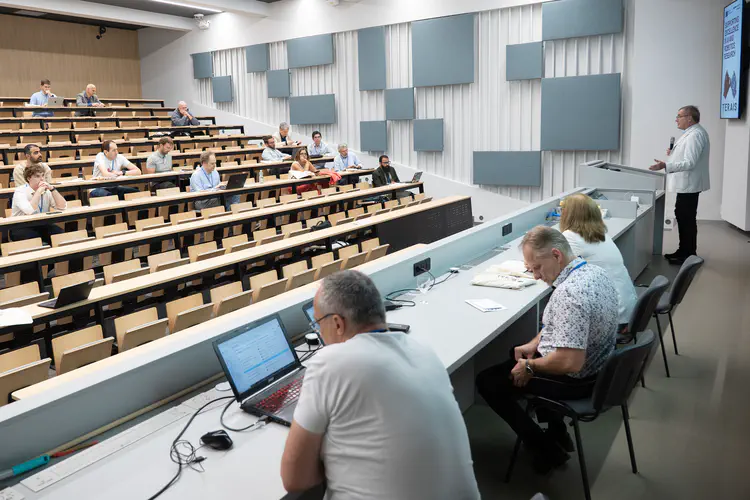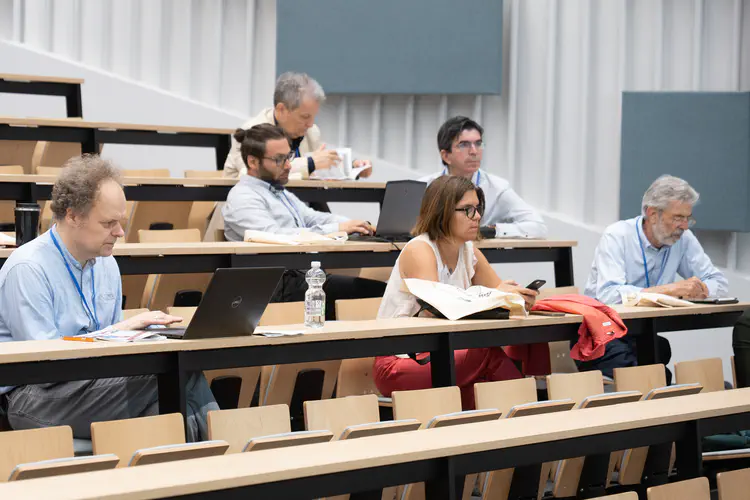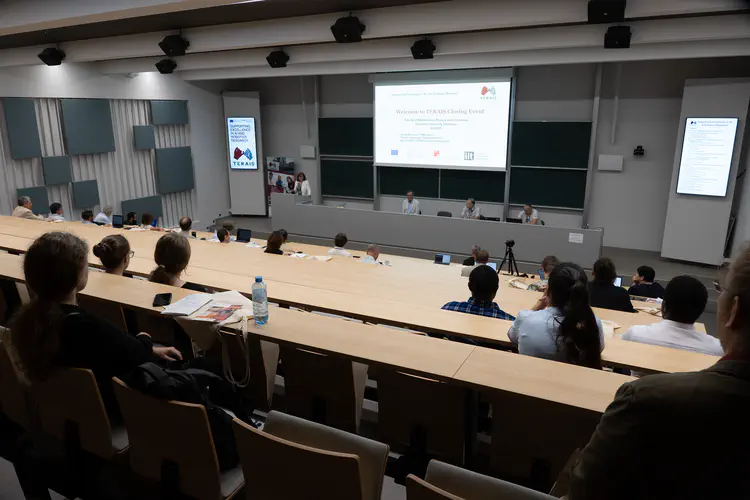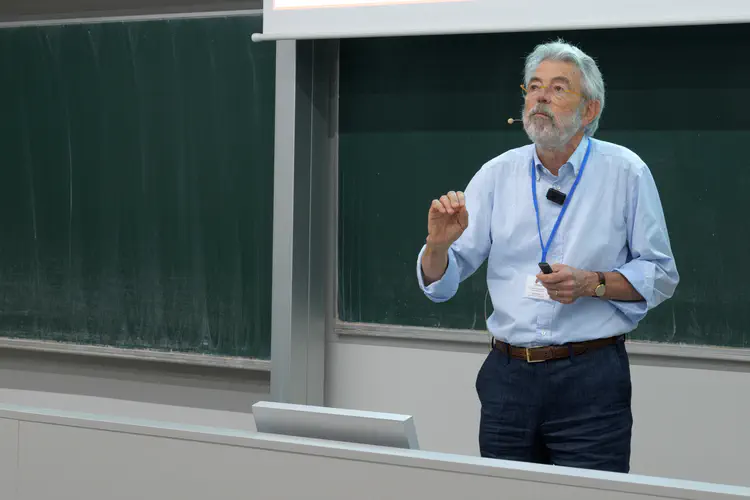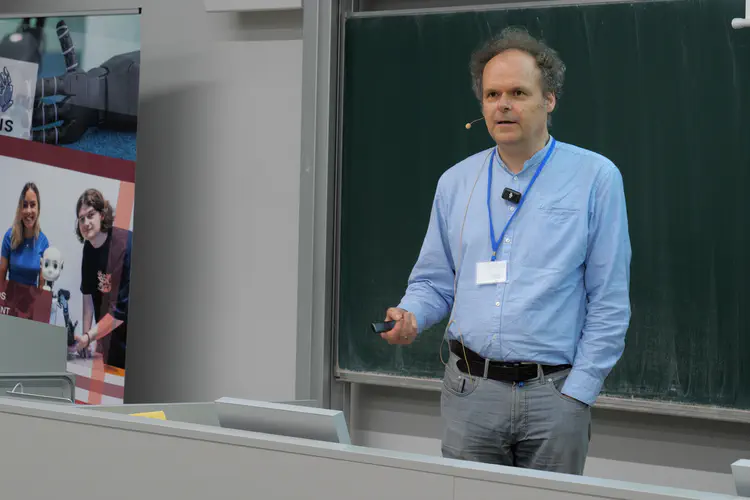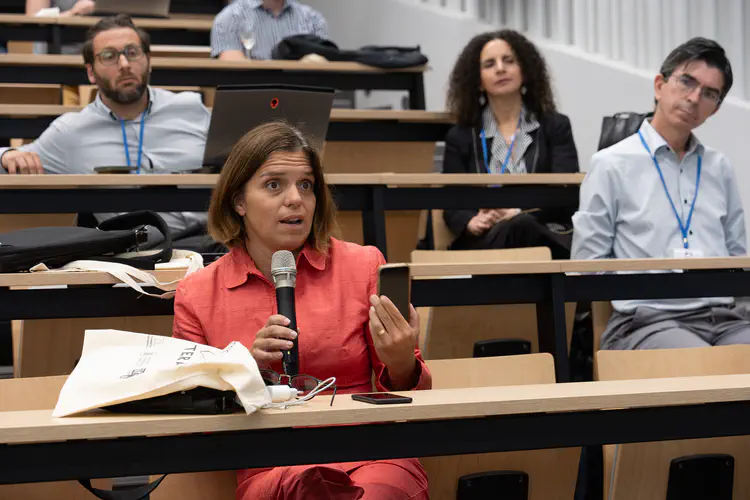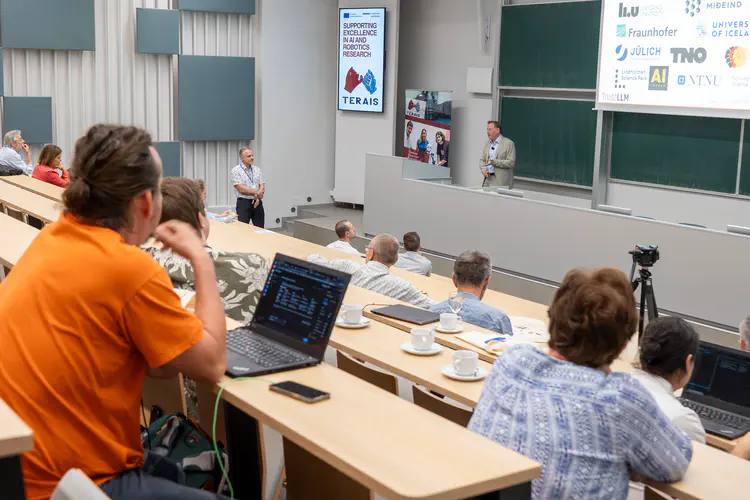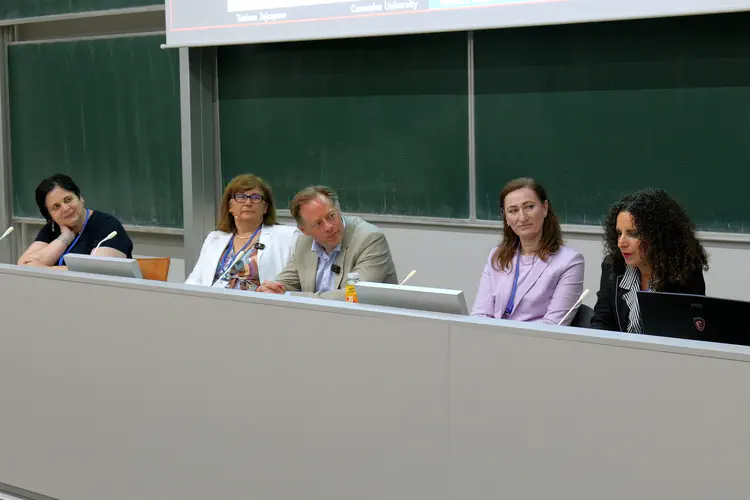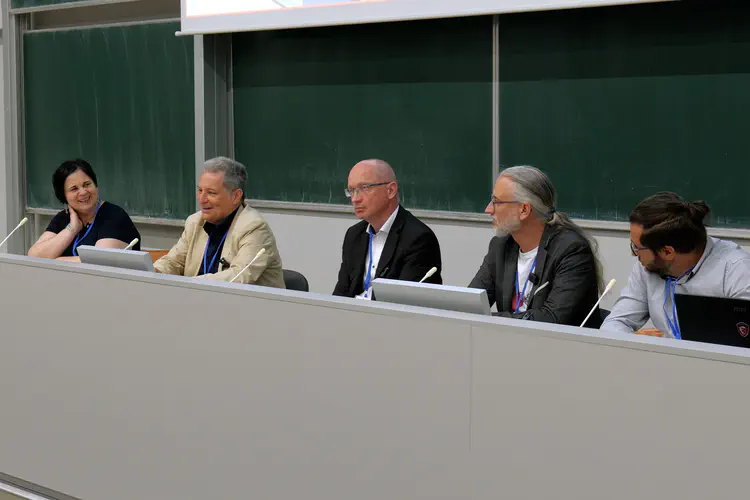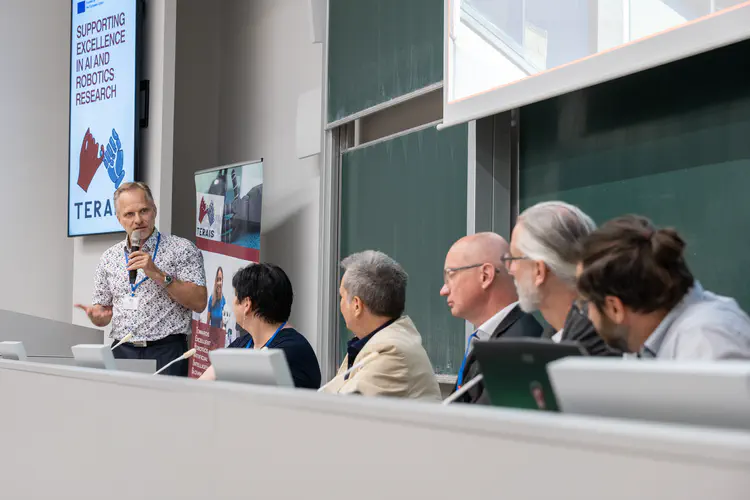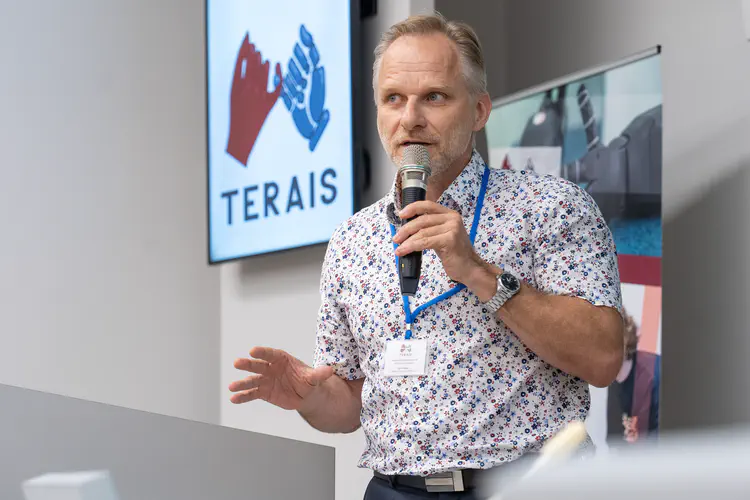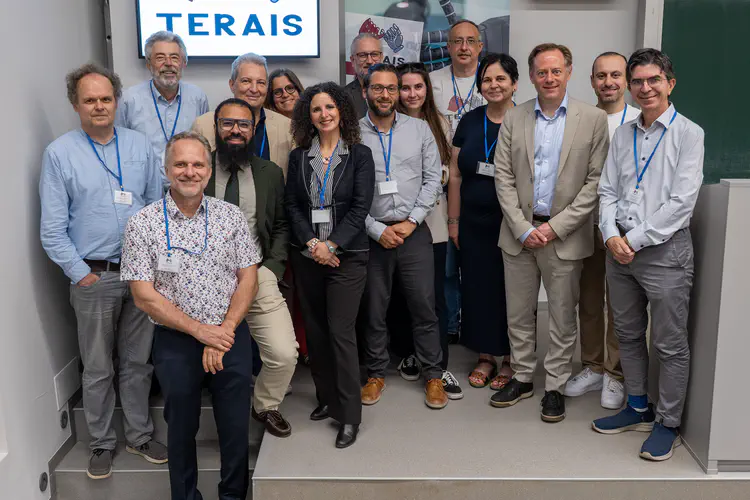Conference on Supporting Excellence in AI and Robotics Research
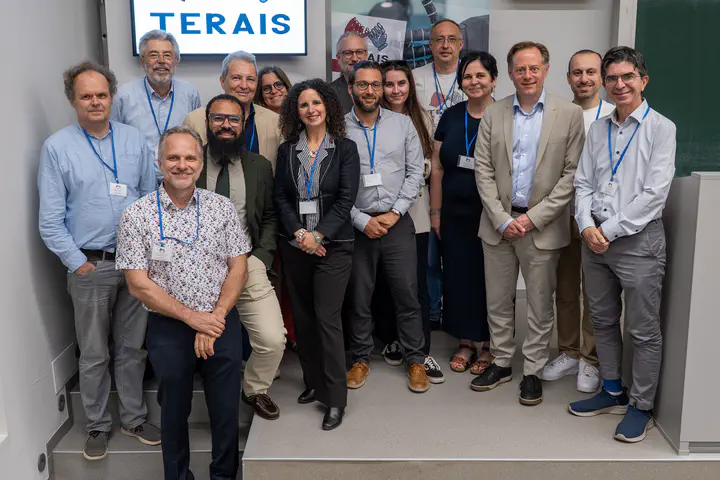
On 16 June 2025, the Faculty of Mathematics, Physics and Informatics of Comenius University in Bratislava hosted the TERAIS closing event, the Conference on Supporting Excellence in AI and Robotics Research. The event brought together leading academics, researchers, and industry experts to celebrate the TERAIS project’s achievements, impact and knowledge exchange, while looking ahead at the future of AI and robotics research.
The day began with a warm welcome from Daniel Ševčovič (FMFI dean), Tatiana Jajcayová (DAI head), and Igor Farkaš (DAI, TERAIS principal investigator), setting the tone for a day of collaboration and forward-looking discussions. The opening lecture was delivered by Angelo Cangelosi (University of Manchester), who presented his cutting-edge work on Developmental Robotics for Language Grounding. His talk introduced the development of cognitive robotics research, particularly the understanding and modelling of language development in the human-like learning, interaction and behaviour of robots. The event continued with a session exploring the strategic approach to research in TERAIS, with contributions from Giulio Sandini (IIT), Cornelius Weber (UHAM), and Igor Farkaš (UKBA) on development of the TERAIS project, particularly the research.
Later on Fredrik Heintz (Linköping University) delivered a thought-provoking lecture on Towards Trustworthy and Factual Large Language Models, underscoring the growing importance of reliability and transparency in AI systems. This was followed by a panel discussion on research support and organizational development at higher education institutions, led by Daniela Olejárová, alongside international experts such as Tatiana Jajcayová (UKBA), Fredrik Heintz ( Linköping University), Alessandra Sciutti (IIT), Zuzana Lisoňová (UKBA) and Igor Farkaš (UKBA).
One of the highlights of the event was spotlight presentations, showcasing innovative research by TERAIS researchers, including some of the doctoral and postdoctoral experts. The presentations were grouped into three thematic blocks:
- Human Awareness: Omar Eldardeer and Andrej Lúčny explored multimodal perception, legibility in robotics, and spatial semantic memory.
- Explainability: Iveta Bečková, Štefan Pócoš, and Miroslav Cibula presented their work on explainable AI in human-robot interaction, enhancing vision transformers, and causal learning in robotics.
- Trustworthiness: Hassan Ali, Lukáš Gajdošech, and Michal Vavrečka addressed challenges in grounding language for robotic actions, transparent object detection, and robot motor calibration.
These sessions offered a vibrant insight of the high-quality research fostered through TERAIS project, reflecting its mission to strengthen excellence not only in research but also the human development of all three partner institutions.
The afternoon of the day featured a panel on tech innovation and industrial partnerships, moderated by Daniela Olejárová (UKBA), joined by Fabrizio Tubertini (IIT), Martin Homola (UKBA), Francesco Rea (IIT) and Robert Redhammer (Slovak Accreditation Agency for Higher Education). The discussion emphasized the need to connect academic research with industrial applications to maximize societal impact.
The conference was closed by remarks of Igor Farkaš (UKBA), who reflected on the project’s accomplishments and future opportunities. The formal program concluded with an informal networking session, allowing participants to forge new connections and discuss collaboration beyond the project’s timeline.
The TERAIS closing event highlighted not only the successes achieved during the project but also the strong potential for continued international collaboration. By fostering excellence in research with a focus on human development, the TERAIS project has laid the foundation for a sustainable research ecosystem that bridges academia, technology transfer, and industry connecting experts and researchers from three partners - University of Hamburg in Germany and the Italian Institute of Technology and Comenius University Bratislava.
